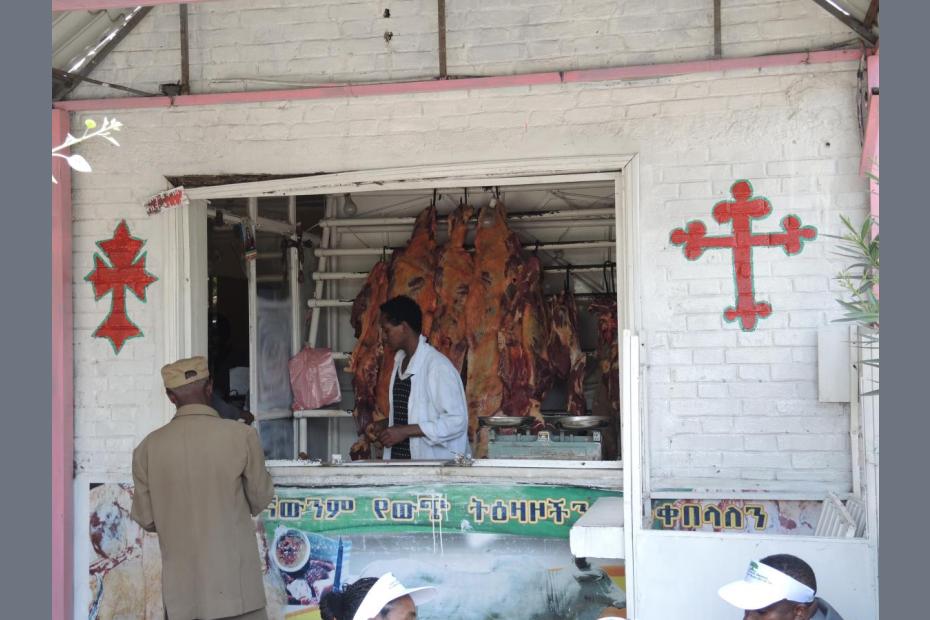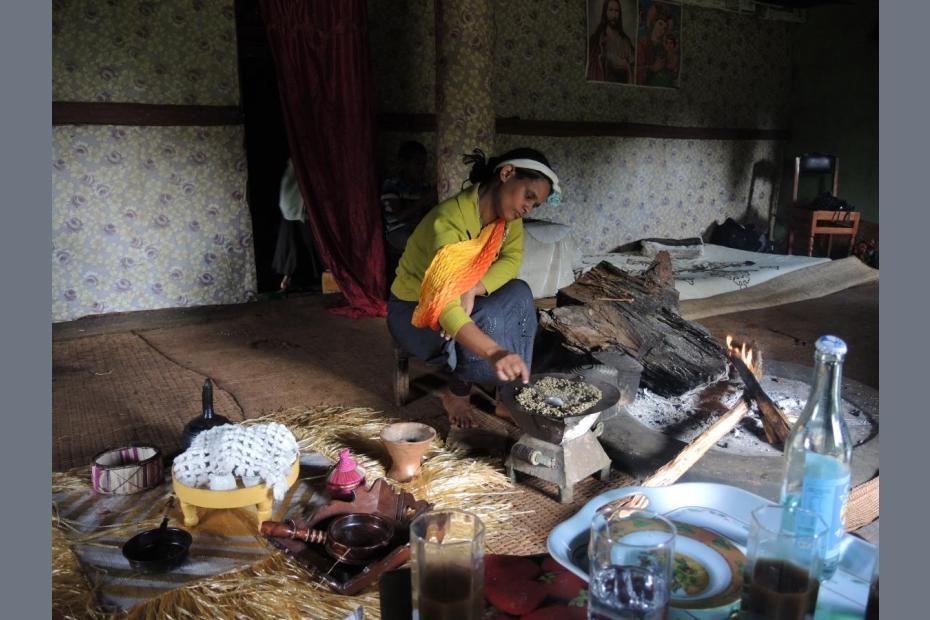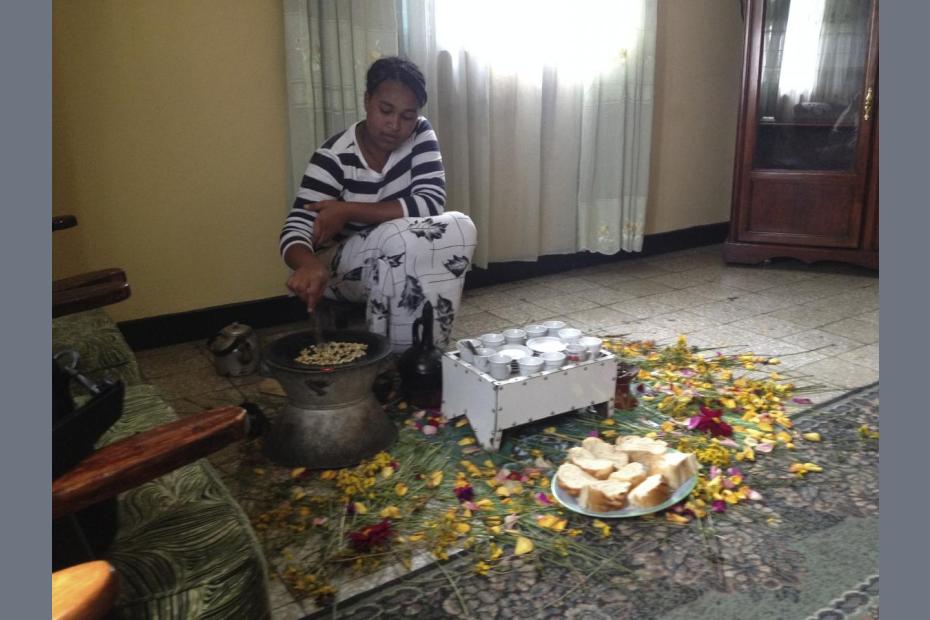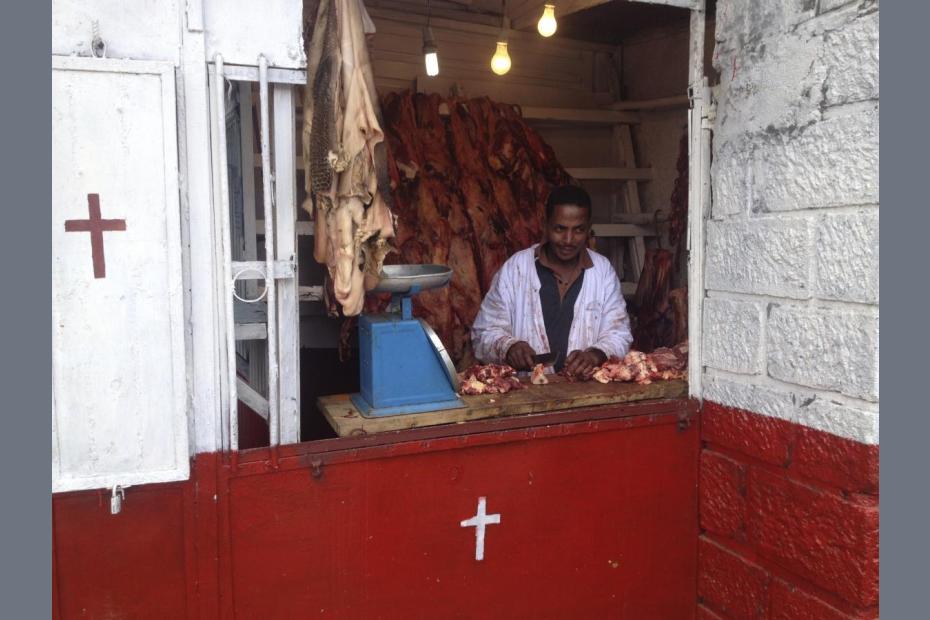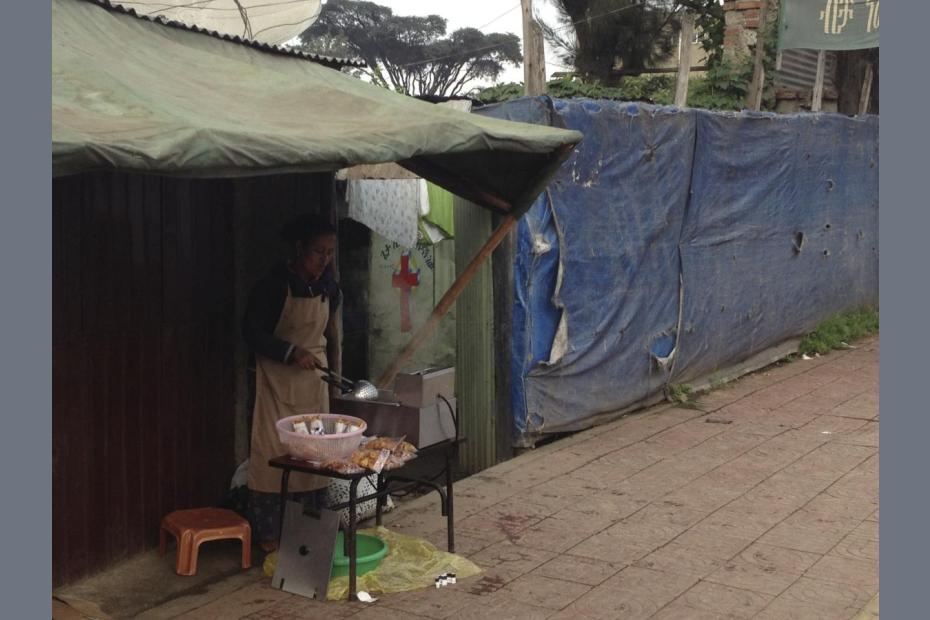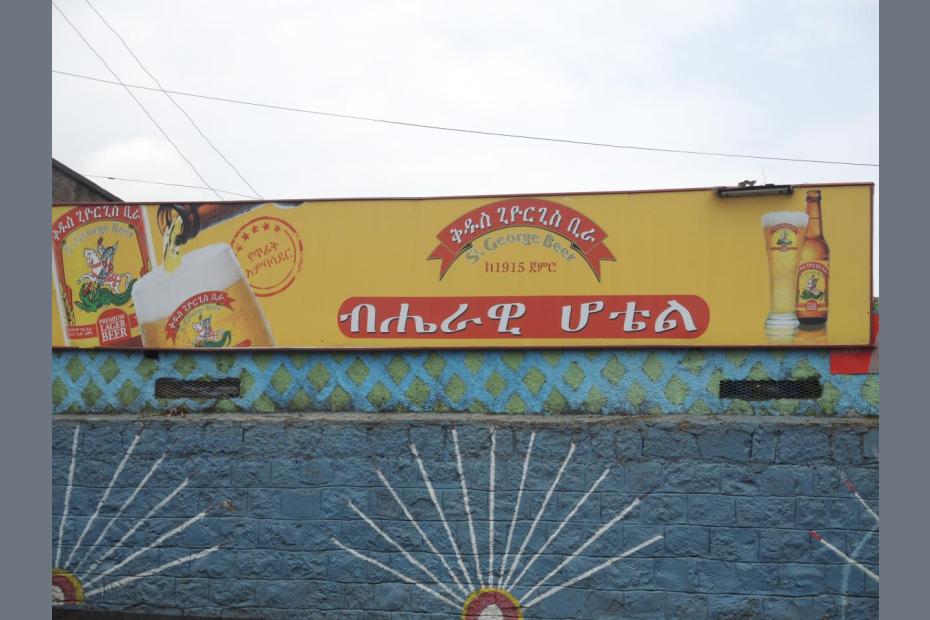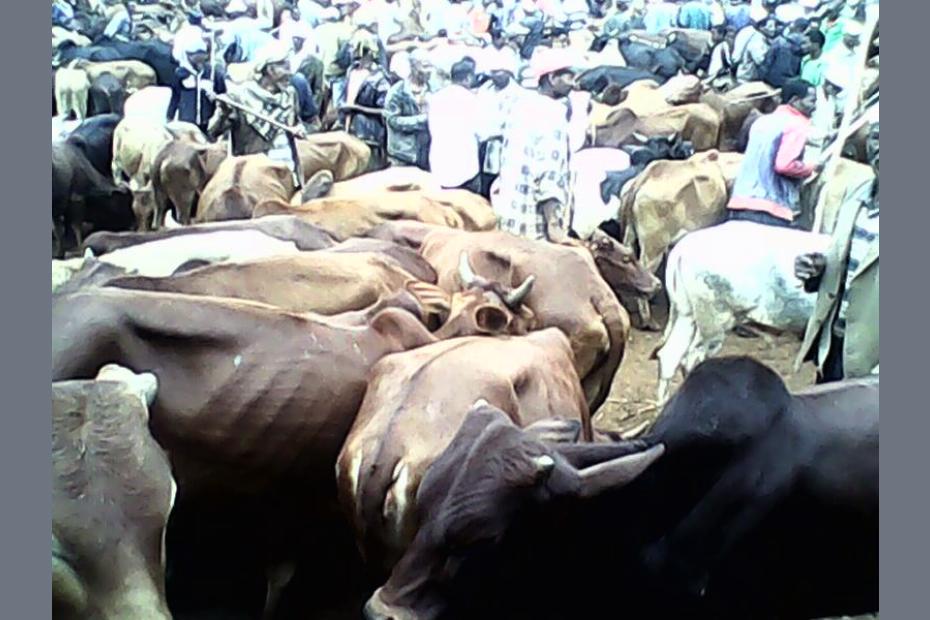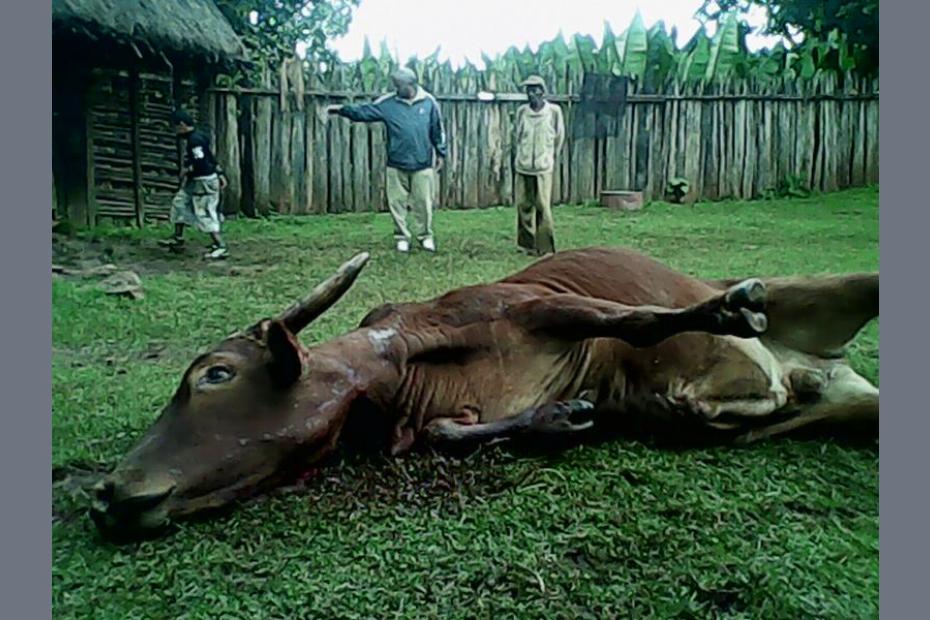Food and abstention from food play a very important role in Ethiopian Catholic life and practice. The norms for Catholic practice are set by Ethiopian Orthodox practice, the more dominant religion in Ethiopia. Catholic practices in Ethiopia are less strict than Orthodox, but far stricter than in the Latin Catholic world.
The Ethiopian Orthodox Church requires lay people over age 13 to fast for at least 180 days a year (monks and other religious are asked to fast for about 250 days a year) including most Wednesdays and Fridays. Advent fasts last for 40 days, and Lenten fasts last for 56 days. The Orthodox Church describes this regimen as one of the “longest and most austere fasts in the world… Fast generally implies one meal a day to be taken either in the evening or after 2:45 p.m. with total abstention from meat, fats, eggs and dairy products. Instead they use cereals, vegetables and other types of food devoid of fats. Smoking is a breach of the fast.” 1
Ethiopian Catholics follow many Orthodox fasting rules, fasting twice a week on Wednesdays and Fridays with no food allowed before the end of the noon Mass (i.e. around 2 p.m.), after which they would eat no meat or dairy products — including cheese, butter, or eggs — but can eat and drink most other things, including beer.
In a nod to Jewish ritual practice, kosher-related food taboos play a significant role in the Ethiopian Orthodox church. The staple bread of Ethiopia, injera, is an unleavened, spongy flatbread. Orthodox believers may not eat pork or meat from animals that do not have cloven hoofs or chew their cud.
Many Catholics who diligently observe other elements of the fast indicate that they do not feel bound by the obligation not to eat pork. Other families insist on the injunction. Though leavened bread is not prohibited, unleavened injera is a staple food eaten by all, including Catholics.
Orthodox believers also have their own rituals for slaughtering meat, and require that all meat they eat must have been slaughtered by a Christian. In Addis Ababa, there is one Christian slaughterhouse and one Muslim one, each of which supplies all respective butchers and restaurants. At the Christian slaughterhouse, an Orthodox priest will bless all the animals with a Trinitarian blessing, a pattern that is repeated in other large towns and cities. In the countryside, this may be left to the senior male householders who pray a Trinitarian blessing over the bull, goat, lamb or chicken before its throat is cut. Women may not fill this role. Christian butcher shops always identify themselves with a cross painted on the stall, and Muslim shops are identified with a crescent. In many regions, Orthodox believers may not eat meat blessed by a Catholic (since Catholics may not fully observe the Orthodox fasting rituals), so butchers tend to be Orthodox, and mixed Orthodox-Catholic families work out an arrangement for who blesses an animal for the Meskel feast. During the 40 days of lent, Christian butcher shops are usually closed entirely, and Christian restaurants will not serve meat. Catholics vary in terms of whether they will eat halal meat served in a Muslim restaurant. Gurage lay people in Emdibir, outside Addis Ababa, describe their fasting and eating practices as quite similar to the Orthodox, while urban Addis Catholics asserted much more flexibility.
Catholics interviewed for this project often use food and fasting rules as a standard by which to judge themselves as more “liberal” than Orthodox, or more “conservative” than Protestants. Nonetheless, in the north and central regions - those areas defined by the historic influence of the Orthodox church - food and fasting are important markers of the Christian life for Catholics. In Southern areas - historically more Latin-rite influenced, and today more Protestant influenced - less attention is given to fasting.
Feasts like Meskel, Christmas and Easter always culminate in a feast.
Hospitality is a core value in Ethiopia. Visitors can come by unannounced or on short notice, and be taken in with extraordinary generosity for a meal or for a coffee ceremony, an elaborate process of roasting beans and serving the coffee. It is perhaps also notable that food, whenever eaten, is always shared. A large plate is served with layers of injera. Meat, fish or legumes with sauces are poured on top, and diners commonly eat from that one large plate. Close friends may even feed one another.
- 1The Ethiopian Orthodox Tewahedo Church. "Religious Holidays and Calendar." http://www.ethiopianorthodox.org/english/calendar.html (accessed April 30, 2014).
